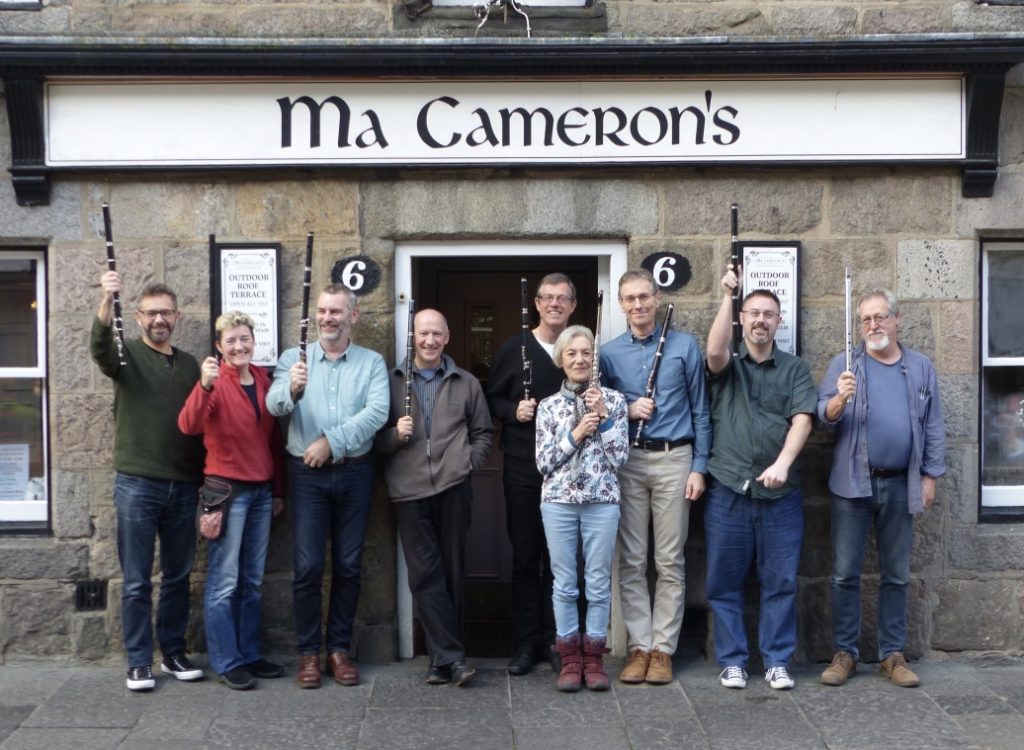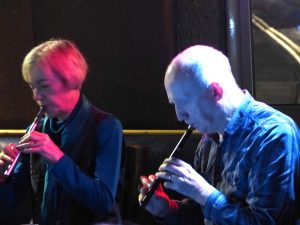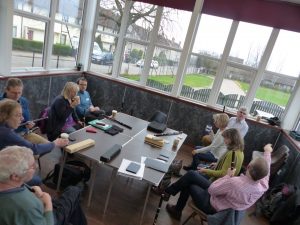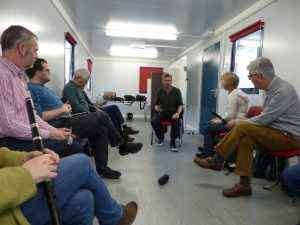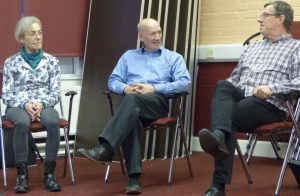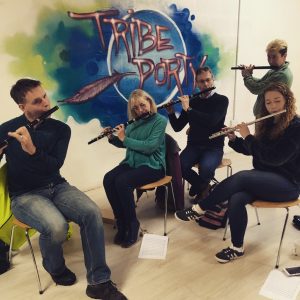A few of us braved the icy conditions last Saturday to continue the journey of learning tunes aided by a process of internalisation. The Tribe Porty White Hall is far warmer than a couple of years ago, with new heating and insulation in place. And Malcolm brought some mince pies along, which were equally welcome!
A few blind tunes were prepared and all of them had noteworthy names: Hunt the Squirrel and The Droketty March were from the playing of Cran, an Irish band with an active interest in Scottish repertoire that also have flutes, whistles and pipes at their instrumental heart.
These proved to be popular, but everyone was also taken by the performance of Mike Vass and Mairearad Green of Tha ‘m Buntata Mor. So instead of working on a new tune and then repertoire, we learned Hunt the Squirrel and Tha ‘m Buntata Mor. Sheet music and recordings of all three tunes are in the Resources section.
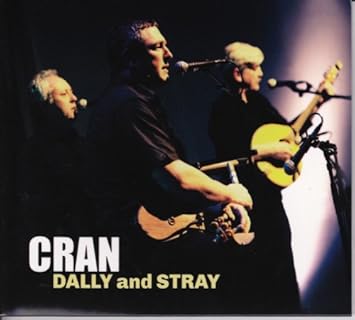 Hunt the Squirrel has a rich history. The Sleeve notes for Cran’s Dally and Stray CD seem to be no longer available online, but a search around sees it associated with Dumfriesshire and Ayrshire.
Hunt the Squirrel has a rich history. The Sleeve notes for Cran’s Dally and Stray CD seem to be no longer available online, but a search around sees it associated with Dumfriesshire and Ayrshire.
Tune Archive suggests it is played in England, Scotland, Ireland and USA and first published in Playford’s English Dancing Master, 1689. There it is listed as A New Scotch Jigg, as Scottish music was fashionable in London at that time. It appears in Oswald’s Caledonian Companion in 1760.
Another, possibly later, name for it is The Geud Man of Ballangigh, which seems to be the name of the dance that accompanies it. This fascinating account reveals that The Geud Man was none other than James V in disguise going about his people in Stirling. Although whether that tale was collected by Scott or invented by him is open to question. The dance that accompanies Hunt the Squirrel can be found on YouTube.
Other references associate it with Ayrshire, Dumfriesshire and Kelso, which gives it a good Lowland spread.
Cran play Hunt the Squirrel in quite a stately and unhurried way, which leads nicely into the busier 3-part Drocketty March. The D and G notes sit strongly on flutes and whistles and are helpful for getting the ear into focus.
Tha ‘m Buntata Mor translates as The Potato is Large and appears to be a 9/8 port a beul, as sung by Julie Fowlis here:
Aside: Note that the port Julie Fowlis sings is more like what the Irish call a hop jig, characterised by an underlying long-short note pattern throughout. By comparison, Muireann Nic Amhlaoibh‘s following song An Bairille has a more standard slip jig sound featuring quavers grouped in three. Incidentally, if that second sounds familiar, it’s a version of The Rocky Road to Dublin. This set is one they recorded on dual, available as a download here. With fine singing, flutes and whistles and Éamon Doorley and Ross Martin accompanying, it’s one to look out for.
However the arrangement by Mike Vass and Mairearad Green, simply entitled Buntàta, is in the old 3/2 hornpipe time, illustrating the connection between 3/2 and 9/8 tunes. Indeed, their arrangement, as recorded on A Day a Month may have been influenced by that relationship.
In G and Em, the tune sticks closely to an arpeggiated melodic structure, so the rhythm becomes even more important. The close repetition of phrases and unusual time signature lends it a hypnotic and beguiling air that draws the listener in. As in some other 3/2 tunes such as Pawky Adam Glen, the underlying rhythm is a constant:
1-and-2-and-3-and | 1-and-2-and-3-and |
1-and-2-and-3-and | 1-and-2-and-3-and ||
The beat tends to fall most heavily on the 1 and 3, so requires a pulsing breath. 3/2 tunes tend to be punchy but this one can also take a moderate pace, so feel free to take it easy while learning it as you won’t lose its inherent identity.
At the workshop we had the three low whistles and two flutes getting into quite a groove with countless repeats and nuances merging that was pleasing to be part of. I wish I had recorded it at the time, but it inspired me to play for a bit longer than usual in my own reference recording of it.
This tune would go well in a set ahead of Pawky Adam Glen. Both are in 3/2 and the shift from G/Em to Bm/D is a striking one. Alternatively, going into a tune in 9/8 would also be effective.
The Droketty March is from Drogheda in County Louth. While we didn’t manage to cover this tune, I have also included it in the Resources.
Upcoming worshops
Edinburgh FluteFling workshops resume 26 January 2019. The FluteFling Scottish Flute Weekend for flutes and whistles will take place in Edinburgh 26-28 April. Sign up to the FluteFling Newsletter to hear news about events and tickets directly.

